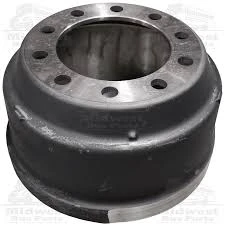
-
 Afrikaans
Afrikaans -
 Albanian
Albanian -
 Amharic
Amharic -
 Arabic
Arabic -
 Armenian
Armenian -
 Azerbaijani
Azerbaijani -
 Basque
Basque -
 Belarusian
Belarusian -
 Bengali
Bengali -
 Bosnian
Bosnian -
 Bulgarian
Bulgarian -
 Catalan
Catalan -
 Cebuano
Cebuano -
 Corsican
Corsican -
 Croatian
Croatian -
 Czech
Czech -
 Danish
Danish -
 Dutch
Dutch -
 English
English -
 Esperanto
Esperanto -
 Estonian
Estonian -
 Finnish
Finnish -
 French
French -
 Frisian
Frisian -
 Galician
Galician -
 Georgian
Georgian -
 German
German -
 Greek
Greek -
 Gujarati
Gujarati -
 Haitian Creole
Haitian Creole -
 hausa
hausa -
 hawaiian
hawaiian -
 Hebrew
Hebrew -
 Hindi
Hindi -
 Miao
Miao -
 Hungarian
Hungarian -
 Icelandic
Icelandic -
 igbo
igbo -
 Indonesian
Indonesian -
 irish
irish -
 Italian
Italian -
 Japanese
Japanese -
 Javanese
Javanese -
 Kannada
Kannada -
 kazakh
kazakh -
 Khmer
Khmer -
 Rwandese
Rwandese -
 Korean
Korean -
 Kurdish
Kurdish -
 Kyrgyz
Kyrgyz -
 Lao
Lao -
 Latin
Latin -
 Latvian
Latvian -
 Lithuanian
Lithuanian -
 Luxembourgish
Luxembourgish -
 Macedonian
Macedonian -
 Malgashi
Malgashi -
 Malay
Malay -
 Malayalam
Malayalam -
 Maltese
Maltese -
 Maori
Maori -
 Marathi
Marathi -
 Mongolian
Mongolian -
 Myanmar
Myanmar -
 Nepali
Nepali -
 Norwegian
Norwegian -
 Norwegian
Norwegian -
 Occitan
Occitan -
 Pashto
Pashto -
 Persian
Persian -
 Polish
Polish -
 Portuguese
Portuguese -
 Punjabi
Punjabi -
 Romanian
Romanian -
 Russian
Russian -
 Samoan
Samoan -
 Scottish Gaelic
Scottish Gaelic -
 Serbian
Serbian -
 Sesotho
Sesotho -
 Shona
Shona -
 Sindhi
Sindhi -
 Sinhala
Sinhala -
 Slovak
Slovak -
 Slovenian
Slovenian -
 Somali
Somali -
 Spanish
Spanish -
 Sundanese
Sundanese -
 Swahili
Swahili -
 Swedish
Swedish -
 Tagalog
Tagalog -
 Tajik
Tajik -
 Tamil
Tamil -
 Tatar
Tatar -
 Telugu
Telugu -
 Thai
Thai -
 Turkish
Turkish -
 Turkmen
Turkmen -
 Ukrainian
Ukrainian -
 Urdu
Urdu -
 Uighur
Uighur -
 Uzbek
Uzbek -
 Vietnamese
Vietnamese -
 Welsh
Welsh -
 Bantu
Bantu -
 Yiddish
Yiddish -
 Yoruba
Yoruba -
 Zulu
Zulu
brake drum inspection
Brake Drum Inspection Ensuring Safety and Performance
Brake systems are a crucial aspect of vehicle safety, and understanding the components that contribute to their effectiveness is essential for any vehicle owner or technician. One of the key components in many braking systems is the brake drum. Brake drums are used in drum brake systems to slow down or stop the vehicle, using friction generated by brake shoes that press against the inner surface of the drum. Regular inspection of brake drums is vital to ensure optimal performance, safety, and longevity of the brake system.
Understanding Brake Drums
Brake drums are typically made from cast iron or aluminum and are designed to withstand the high temperatures and pressures generated during braking. Over time, however, they can wear down, warp, or develop cracks due to the constant friction and heat exposure. Inspecting brake drums regularly helps identify issues before they lead to more significant problems, ensuring that the braking system operates effectively.
Signs That Brake Drum Inspection is Needed
There are several indicators that vehicle owners should look for to determine whether their brake drums need inspection. Common signs include unusual noises such as grinding or squeaking sounds while braking, vibration through the brake pedal, or a decrease in braking effectiveness. If the vehicle pulls to one side during braking, this could also indicate an issue with the brake drum or the overall braking system. Recognizing these signs early on can prevent potential accidents and costly repairs later.
brake drum inspection

Inspection Procedure
When inspecting brake drums, it’s essential to begin with a visual examination. This includes checking for visible signs of wear, such as grooves, scoring, or cracks on the drum surface. The brake drum should also be checked for excessive rust or corrosion, which can compromise its structural integrity. Additionally, measuring the drum for any warping or out-of-roundness using a micrometer or caliper is crucial. Most manufacturers provide specifications for acceptable tolerances, and any deviation may necessitate reconditioning or replacement.
After the visual inspection, it’s important to examine the brake shoes and springs as well. Worn-out brake shoes can contribute to uneven wear on the brake drum and reduce overall braking efficiency. Replacing worn components at the same time can lead to better performance and extended life for the entire braking system.
Conclusion
Regular brake drum inspection is a simple yet effective way to ensure the safety and reliability of a vehicle. By paying attention to the signs of potential issues and following a thorough inspection procedure, vehicle owners and technicians can catch problems early, preventing more severe complications down the line. Whether it's for a regular maintenance check or in response to unusual performance, prioritizing brake drum inspection plays a significant role in maintaining the overall safety of the vehicle and its occupants. Remember, a well-functioning brake system is not only crucial for stopping the vehicle but also for ensuring the safety of everyone on the road. Always consult with a professional mechanic if you're unsure about the condition of your brake drums, and never compromise on safety when it comes to vehicle maintenance.
-
What Are Drum BrakesNewsJul.07,2025
-
Understanding Brake Drum MaterialNewsJul.07,2025
-
Semi-Trailer Brake Drum: A Key Component for Extreme Loads and Long-Distance TransportNewsJul.07,2025
-
Drum Brake Pads for SaleNewsJul.07,2025
-
Brake Drums for SaleNewsJul.07,2025
-
Brake Drum ManufacturerNewsJul.07,2025
-
Aluminum Brake Drums: The Future of High-Performance CarsNewsJul.07,2025
